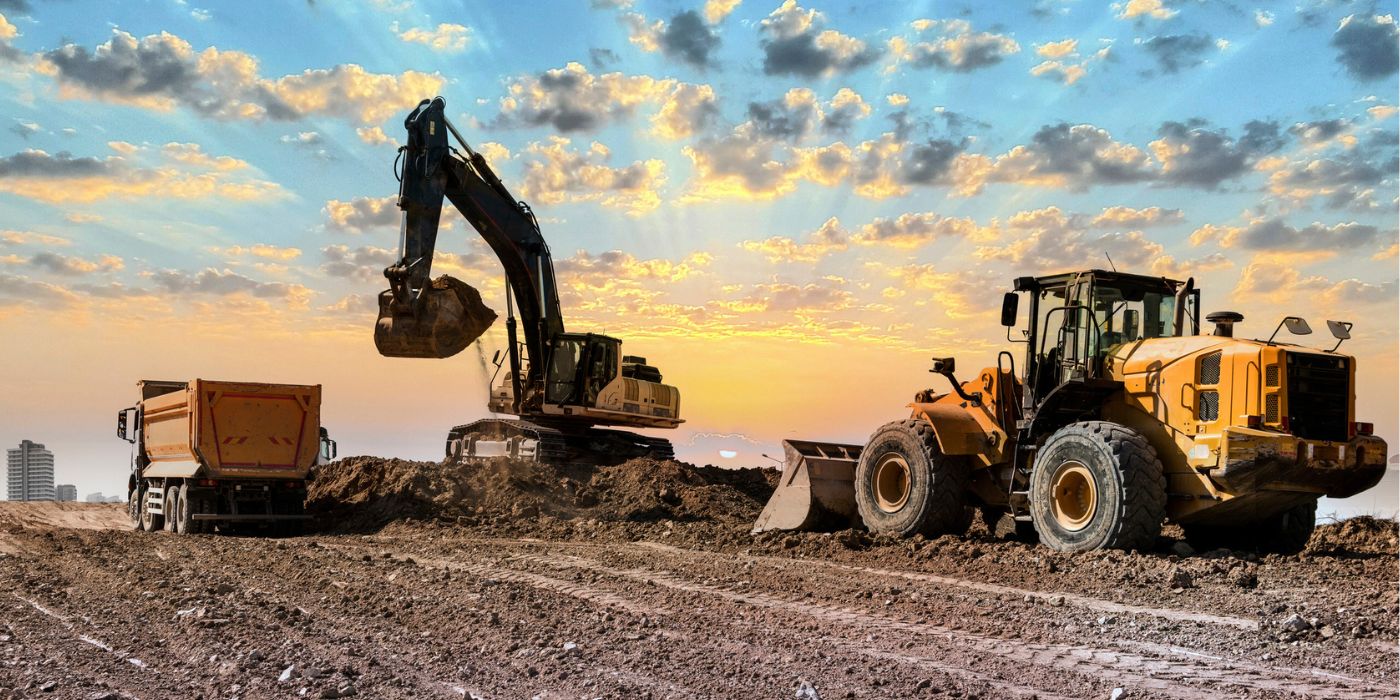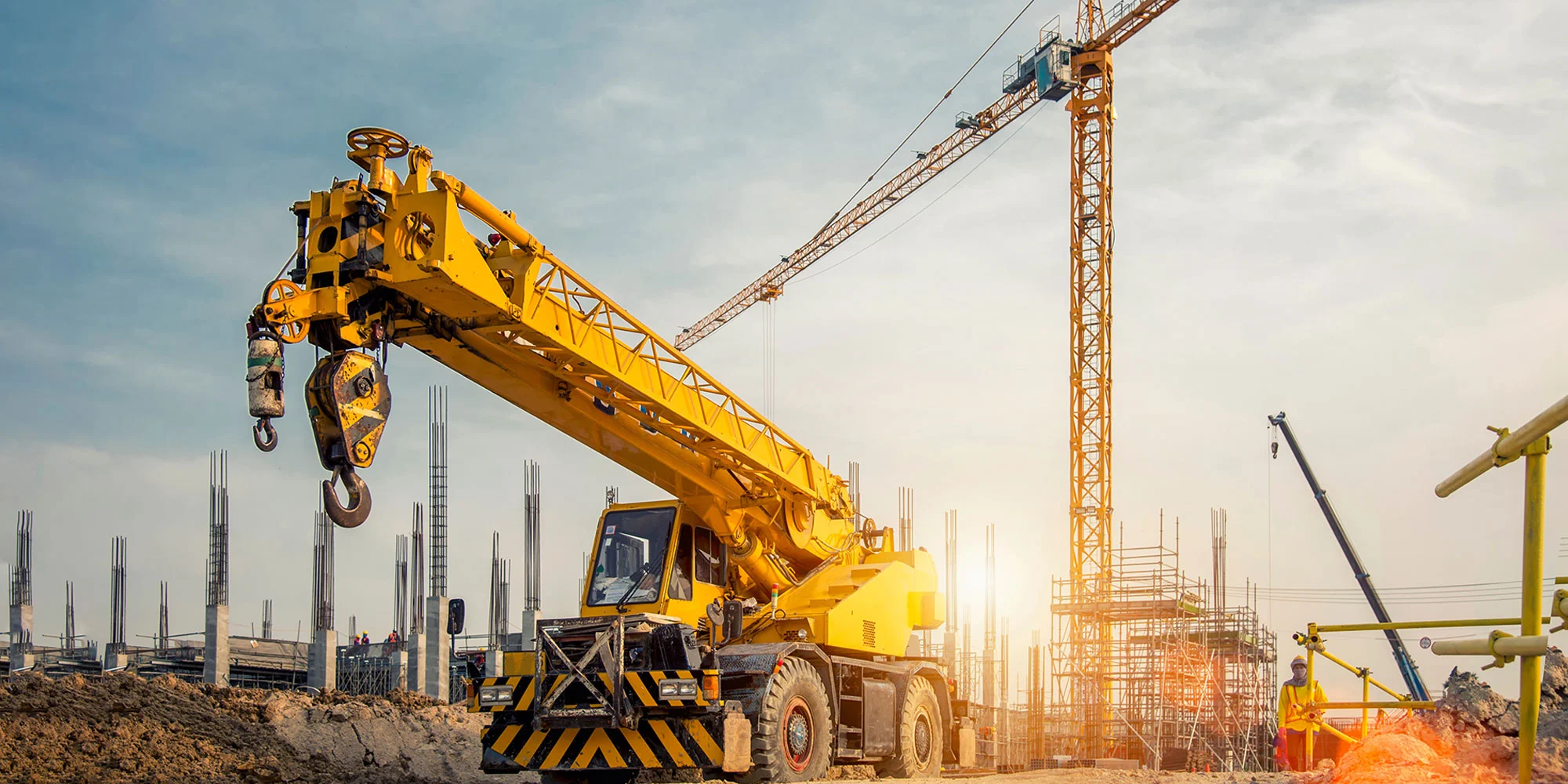Equipment Rental Company in Tuscaloosa AL: Your Relied On Resource for Equipment
Equipment Rental Company in Tuscaloosa AL: Your Relied On Resource for Equipment
Blog Article
Discovering the Financial Benefits of Leasing Building And Construction Tools Compared to Possessing It Long-Term
The choice in between owning and renting building devices is critical for financial monitoring in the sector. Leasing offers immediate price financial savings and functional versatility, enabling companies to allot sources much more efficiently. Recognizing these subtleties is crucial, specifically when thinking about how they align with specific job requirements and financial strategies.

Expense Contrast: Leasing Vs. Having
When assessing the financial implications of having versus leasing construction equipment, a thorough price comparison is vital for making informed choices. The option in between leasing and owning can substantially impact a firm's profits, and comprehending the associated costs is crucial.
Renting out building and construction equipment commonly includes lower ahead of time prices, enabling businesses to allot funding to various other operational demands. Rental contracts often include flexible terms, enabling business to accessibility advanced equipment without long-term dedications. This flexibility can be especially advantageous for short-term tasks or varying workloads. Nevertheless, rental prices can build up gradually, potentially exceeding the expenditure of ownership if tools is needed for an extensive period.
Alternatively, possessing construction equipment requires a significant first investment, in addition to recurring prices such as insurance policy, funding, and devaluation. While possession can bring about lasting savings, it also locks up funding and may not supply the very same degree of adaptability as leasing. Additionally, having devices necessitates a commitment to its usage, which may not always line up with job needs.
Inevitably, the choice to possess or rent out needs to be based upon a thorough analysis of certain task demands, monetary capability, and lasting tactical goals.

Upkeep Duties and expenses
The choice in between leasing and having building devices not only involves financial factors to consider yet additionally includes continuous maintenance expenditures and duties. Having devices requires a considerable commitment to its upkeep, that includes routine examinations, fixings, and prospective upgrades. These obligations can rapidly build up, resulting in unforeseen prices that can stress a spending plan.
On the other hand, when leasing devices, maintenance is usually the obligation of the rental company. This arrangement allows professionals to avoid the economic worry related to deterioration, as well as the logistical challenges of organizing repair services. Rental contracts commonly include provisions for upkeep, suggesting that service providers can concentrate on completing projects as opposed to bothering with devices condition.
In addition, the diverse series of tools offered for lease enables business to select the current models with innovative innovation, which can boost effectiveness and performance - scissor lift rental in Tuscaloosa Al. By going with rentals, businesses can prevent the long-lasting obligation of equipment devaluation and the associated upkeep headaches. Eventually, evaluating upkeep expenses and obligations is crucial for making a notified choice about whether to possess or rent building and construction devices, considerably influencing total project expenses and functional efficiency
Devaluation Influence On Possession

A significant element to think about in the choice to possess construction devices is the effect of devaluation on overall ownership expenses. Devaluation stands for the decrease in worth of the tools over time, influenced by aspects such as use, damage, and developments in innovation. As devices ages, its market price lessens, which can significantly affect the owner's monetary setting when it comes time to market or trade the tools.
For building and construction business, this depreciation can translate to substantial losses if the tools is not used to its maximum capacity or if it becomes obsolete. Proprietors need to represent depreciation in their economic forecasts, which can lead to higher overall expenses compared to renting out. Furthermore, the tax ramifications of depreciation can be complex; while it might offer some tax obligation benefits, these are frequently countered by the truth of lowered resale value.
Inevitably, the concern of devaluation highlights the importance of comprehending the long-term monetary dedication included in owning building equipment. Companies must carefully review just how frequently they will certainly use the devices and the possible financial effect of devaluation to make an educated choice about ownership versus leasing.
Economic Flexibility of Leasing
Renting out construction devices supplies significant monetary versatility, allowing companies to designate sources more effectively. This flexibility is specifically essential in a market identified by fluctuating job needs and differing work. By new construction tools opting to lease, services can stay clear of the substantial capital investment needed for acquiring equipment, preserving capital for various other operational requirements.
In addition, renting equipment enables companies to tailor their equipment options to particular job demands without the lasting dedication connected with ownership. This implies that services can conveniently scale their tools supply up or down based upon existing and awaited job requirements. Subsequently, this adaptability reduces the risk of over-investment in machinery that might become underutilized or out-of-date over time.
Another financial advantage of renting out is the potential for tax obligation advantages. Rental settlements are frequently thought about business expenses, permitting immediate tax deductions, unlike devaluation on owned and operated tools, which is topped a number of years. scissor lift rental in Tuscaloosa Al. This instant expense recognition can further boost a business's money position
Long-Term Project Factors To Consider
When examining the long-lasting needs of a construction company, the decision between renting and owning devices ends up being much more complex. Trick variables to think about include task period, frequency of use, and the nature of upcoming jobs. For jobs with extended timelines, acquiring devices might appear beneficial because of the potential for reduced general costs. However, if the tools will not be made use of constantly across jobs, owning might lead to underutilization and unneeded expense on insurance coverage, upkeep, and storage.
Additionally, technological improvements posture a considerable factor to consider. The construction industry is progressing swiftly, with brand-new tools offering boosted efficiency and safety features. Renting enables business to access the most recent technology without committing to the high upfront costs related to acquiring. This adaptability is especially valuable for organizations that take care of diverse projects requiring different types of devices.
In addition, economic security plays an essential duty. Having devices frequently involves considerable capital investment and devaluation issues, while renting out permits even more predictable budgeting and cash circulation. Eventually, the choice in between leasing and possessing ought to be straightened with the calculated objectives of the building and construction company, thinking about both anticipated and present project needs.
Final Thought
In final thought, renting out building equipment try this offers significant monetary advantages over long-lasting possession. The lessened in advance prices, elimination of upkeep obligations, and evasion of depreciation add to enhanced capital and monetary versatility. scissor lift rental in Tuscaloosa Al. In addition, rental repayments act as prompt tax deductions, helpful hints additionally benefiting professionals. Inevitably, the choice to rent rather than own aligns with the vibrant nature of building and construction projects, enabling for flexibility and accessibility to the current tools without the economic burdens related to possession.
As tools ages, its market worth diminishes, which can substantially impact the owner's monetary position when it comes time to sell or trade the equipment.
Leasing building devices provides significant financial flexibility, permitting firms to designate resources much more efficiently.In addition, renting out devices allows companies to customize their devices options to specific job needs without the long-lasting commitment linked with possession.In conclusion, renting out building equipment supplies considerable financial benefits over long-lasting ownership. Inevitably, the choice to lease instead than own aligns with the dynamic nature of building and construction jobs, allowing for versatility and access to the newest tools without the monetary burdens linked with possession.
Report this page